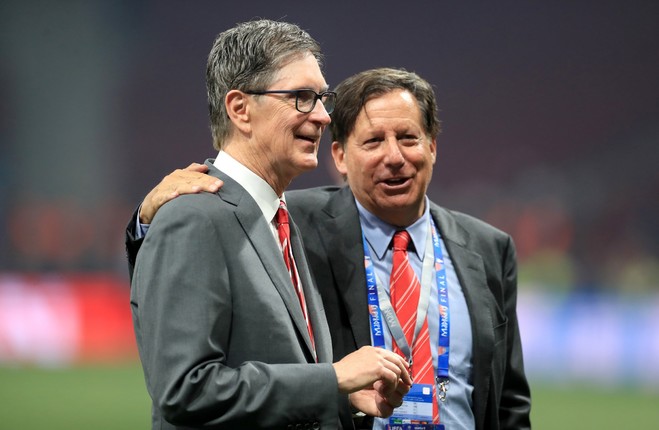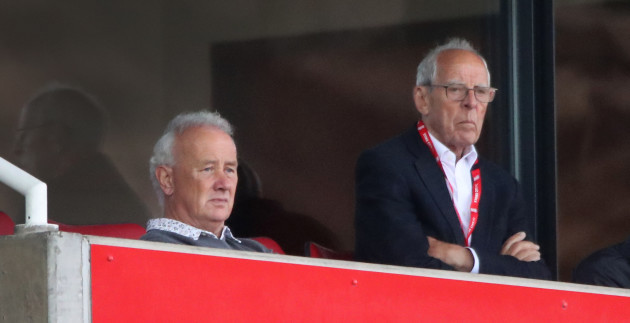PROJECT BIG PICTURE sprung to our attention this week, with days of claim, counter-claim, debate and fulmination ending with a vote on the issue at a Premier League meeting yesterday, at which it was unanimously rejected.
Those in favour say it’s far from dead, with clubs committing to a “strategic review” that will see elements of the proposal return again.
The proposal was broken by the Telegraph on Sunday night, and effectively proposed giving the 72 clubs in the Championship, League One and League Two a bigger slice of the pie in return for greater decision-making powers for the Big Six.
Here’s the deal. The Premier League would hand a £250 million bailout to the 72 EFL clubs, and also cut them in on 25% of future television rights. In return, the Premier League would be cut to 18 teams – with the 16th-placed side offered a play-off to save themselves – and the League Cup and Community Shield would be scrapped, with more significant changes in the boardroom.
Presently all Premier League decisions are made under two principles: one club, one vote, passed by a simple two-thirds-majority.
This would change that, with the Big Six – Liverpool, Chelsea, Arsenal, Spurs and the Manchester clubs – along with another three ‘long-term shareholders’, West Ham, Everton and Southampton, given stronger voting rights to decide major issues by themselves, including TV deals and proposed takeovers.
The Premier League has created a chasm between the Premier League 20 and the 72 clubs in the Football League, this would effectively change the line of inequality to being between the Big Six and the 86 others. Think of it as narrowing the middle class in favour of a monarchy atop a more egalitarian peasantry.
Once the details leaked on Sunday, there were a swift series of condemnatory statements.
The Premier League said it could “have a damaging impact on the whole game”, while the UK fretted that it would create a “closed shop at the very top of the game.”
They are, in one sense, correct.
This is a naked grab for power by the Big Six: a short-term turn of altruism in return for the voting power to take a larger slice of future profits while binning domestic competitions to free up space for games in a lucrative and expanded European competition.
The EFL will benefit, but its ultimate aim is to allow the rich to get richer.
Project Big Picture is anathema to the collectivism that should be promoted by football, but let’s get real here: collectivism in football has been dead since the eighties.
The top of the game is already a closed shop, with the Big Six already getting a higher share of the profits having successfully changed the distribution of the overseas TV deal in their favour in 2018.
They earned it by arguing the world is paying to watch them rather than the likes of Burnley and Brighton, and that principle may even at play in the grotesque £15 pay-per-view pricing of games not picked for live TV.
Perhaps the point of this pricing is to ensure people don’t see these games, as showing too much bad football is bad for the product: a broadcasting source told the Times last week that “screening every match interfered with the ambition of making big Premier League games must-watch events for all fans.”
Meanwhile, look at what has been happening on the pitch. The title winner in each of the last four seasons has earned more than 90 points, which is as many times as it happened across all of the previous 24 seasons.
The last three seasons have seen records set for the following: earliest title win; biggest title win; most points collected by a title winner and a runner-up; most away points collected; most wins (a record set thrice); most home wins (a record set twice); most away wins; most consecutive wins (also set twice); and most goals scored.
The Premier League argue this would damage the game as a whole, and perhaps they are right, but the status quo has already banjaxed the game.
In July, a UK Sport Select Committee reported that English football’s business model is “not sustainable”, saying one in five Football League clubs risked going bust amid the pandemic. Macclesfield have since disappeared, following Bury last year
Clubs are becoming ever more reliant on the kindness of strangers. Leyton Orient, for example, are sponsored by Totteham’s captain and also had to rely on Tottenham to pay for their Covid-19 testing ahead of their Cup meeting last month.
The Championship, meanwhile, is utterly berserk, spending an average of 107% of turnover on wages, in pursuit of the Premier League’s riches.
The Premier League has little interest in spreading these riches: in 2018/19, they paid a total of £148 million to clubs in the Football League. As EFL Chair Rick Parry, Project Big Picture’s most vocal supporter, the ‘bottom 14’ in the Premier League earned £1.58 billion.
The Premier League this week offered a £50 million bailout (just shy of one Thomas Partey) to Leagues One and Two clubs in the form of grants and interest-free loans, but it was rejected.
The root of all of this inequality was the moment football clubs were allowed to become instruments of profit.
Once upon a time, the FA had rules banning clubs being run as businesses, so shareholders could take no more than 7.5% of the profits, and no director could be employed or paid by the clubs.
Spurs’ owner Irving Scholar found a way around this in the 1980s by creating a holding company to run the club, with no limits on the money that could be paid to the holding company. He wrote to the FA to inform them of his move, but they didn’t even reply.
Clubs have existed to make money ever since, and it has weakened structures to the point the pandemic can bring the English football pyramid to collapse.
Project Big Picture is the Big Six ensuring they don’t let this crisis go to waste, and, on the face of it, seems to be a terrible idea. But it’s only the latest terrible idea in the long series of terrible ideas in English football’s pursuit of profit, and so with swathes of the lower leagues teetering on the edge of oblivion, this may be a Faustian pact worth making.
English football embraced capitalism a long time ago, and the big boys have won.
It’s their game now.


